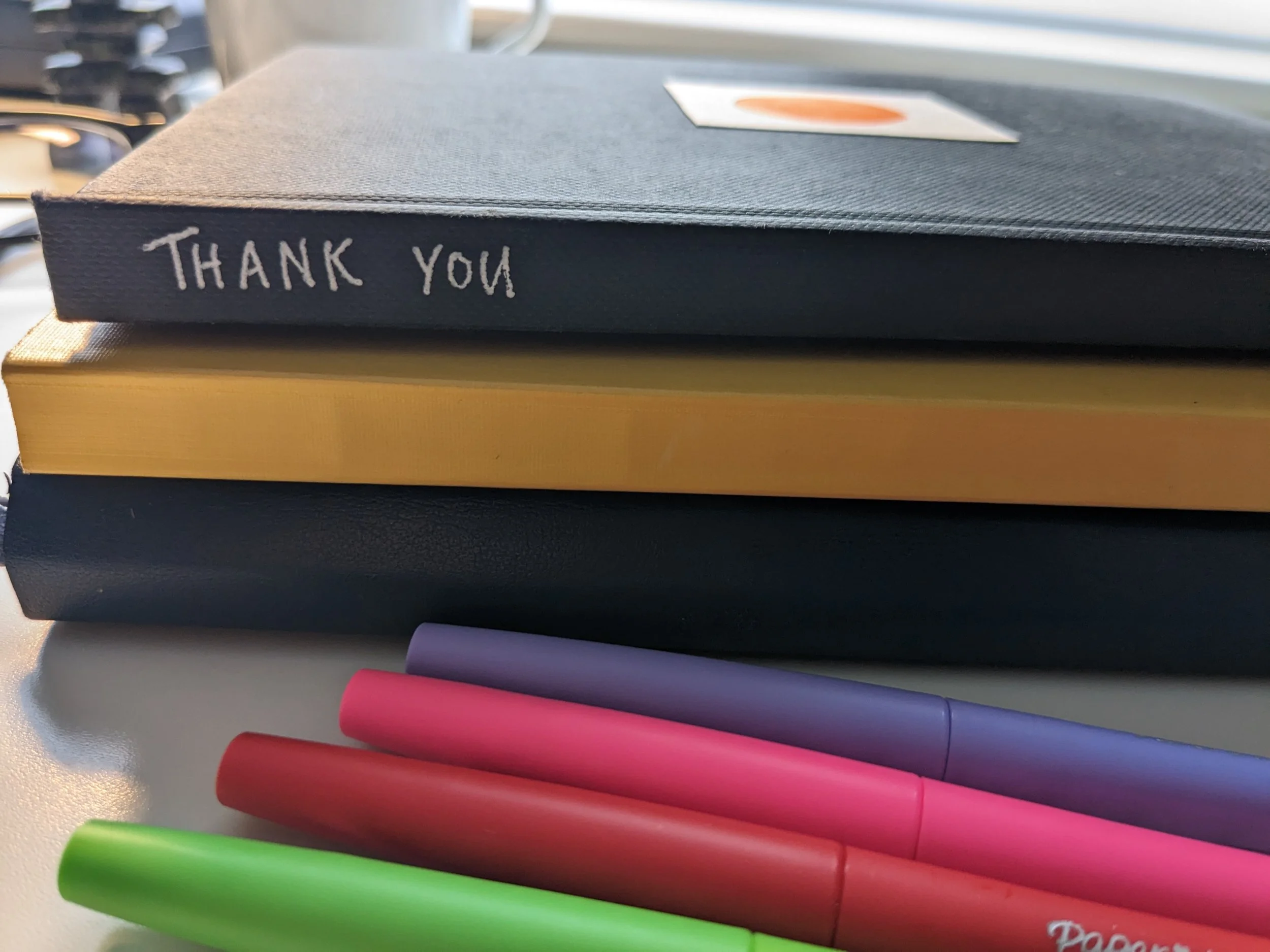My thank you journal: A new (for me) daily practice
Although I know that there’s a growing body of research on the positive correlation between gratitude and wellbeing, I have always struggled with gratitude journaling practices.
Over the years, I’ve experimented with gratitude in my journal, including writing ‘three good things’ at the end of each day (a practice sometimes called ‘sifting for gold’.) I’ve tried writing a gratitude list, which sometimes seems to shift my mood when I’m feeling a bit low or sorry for myself. But it never really stuck.
Until a few weeks ago.
I now realise that the main problem for me was that word, ‘gratitude.’ It sounds a little finger-wagging, like something I should be able to feel. And as a recovering ‘good girl,’ I really don’t need another voice in my head telling me what I should or ought to be doing, feeling, thinking: You’ve got so much to be grateful for, Sophie. So just get on with it and stop moaning.
I don’t mean that this kind of talking-to isn’t useful at times. But what is more helpful for me, at this point in my life, is to make a space of quiet and calm, a place that feels nurturing.
And lately, I’ve been experimenting with ‘thank you’.
Since losing my Dad, very suddenly, in September 2022, I have struggled, some days, with overwhelming grief, a depth of sorrow that can feel bottomless.
I knew that I needed something to support me through this time. Something that will help me to turn my face to the sun.
Thank you seems to be working for me in a way that ‘grateful’ never did.
Thank you for… Thank you for… feels a little like a prayer. It’s the way I begin each morning right now. Just me and the page and all the things I can say thank you for.
***


